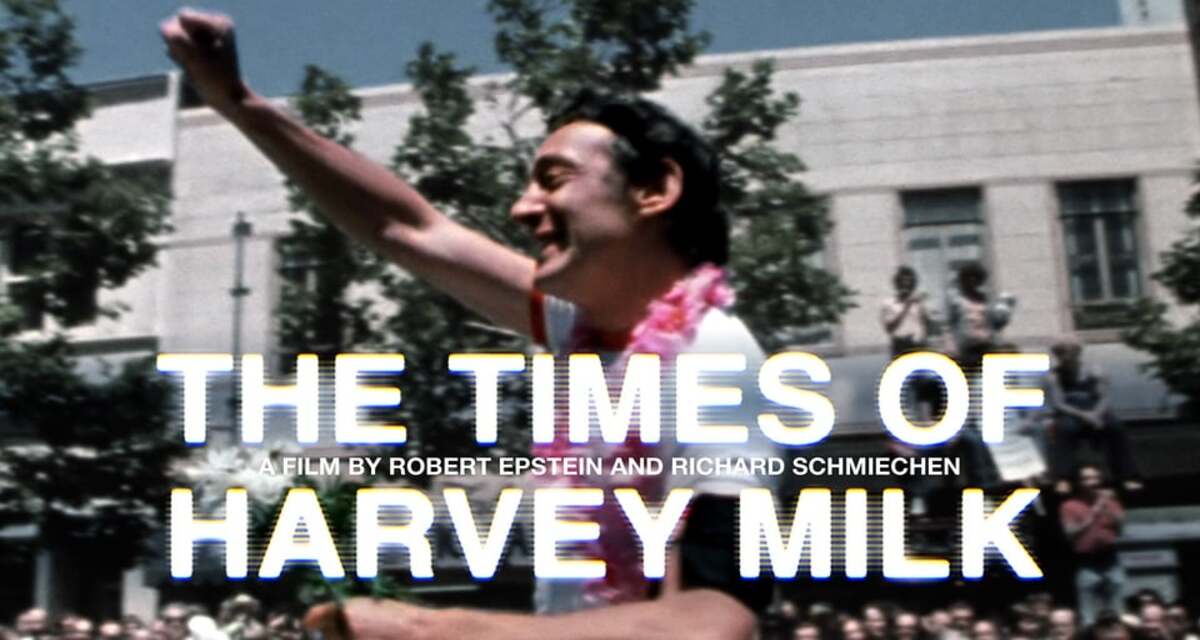
The Times of Harvey Milk is a powerful and moving documentary that chronicles the life and political career of Harvey Milk, the first openly gay elected official in California. Directed by Rob Epstein, the film portrays Milk’s rise to prominence as a leading figure in the LGBT rights movement in San Francisco during the late 1970s. Through a combination of archival footage, interviews, and personal recollections, The Times of Harvey Milk provides a compelling and intimate look at Milk’s dedication to civil rights and his ultimate assassination, which tragically cut short his promising career. With its honest portrayal of Milk’s struggles and triumphs, the documentary sheds light on the enduring legacy of this influential and courageous leader. Join us as we explore 45 fascinating facts about The Times of Harvey Milk, delving into the historical context, the filmmaking process, and the impact of this critically acclaimed documentary.
Key Takeaways:
- The Times of Harvey Milk” won an Academy Award and is a must-watch documentary about the first openly gay elected official in California, Harvey Milk, showcasing his impact on LGBTQ+ rights and the power of grassroots activism.
- This groundbreaking film captures the spirit of hope, resilience, and the ongoing struggle for LGBTQ+ equality, making it an essential addition to the watchlist for history buffs, film enthusiasts, and social justice advocates.
The Times of Harvey Milk won the Academy Award for Best Documentary Feature.
This critically acclaimed film received the prestigious Oscar in 1985, solidifying its status as a must-watch documentary.
The movie was based on the real-life events surrounding Harvey Milk.
Through interviews, archival footage, and narration, the film provides an authentic account of Milk’s life, activism, and the social and political landscape of 1970s San Francisco.
The documentary highlights the impact of the LGBTQ+ community in San Francisco.
The movie captures the rise of the gay rights movement and the vibrant community that emerged in the Castro District during that time.
The Times of Harvey Milk was initially released as a short film.
The original version was only 28 minutes long and premiered in 1983 before being expanded into a feature-length documentary.
The film features interviews with Milk’s friends, colleagues, and supporters.
Key figures such as Anne Kronenberg, Milk’s campaign manager, and Cleve Jones, a gay rights activist, share their insights and memories of the influential leader.
The movie explores the political landscape of the 1970s.
It delves into the various social and cultural movements that shaped the era, including the fight for LGBTQ+ rights and the feminist movement.
Harvey Milk’s own voice is heard throughout the documentary.
Audio recordings of Milk’s speeches and interviews offer a personal and intimate look into his thoughts, beliefs, and aspirations.
The documentary includes poignant archival footage.
Through newsreels and home videos, viewers get a glimpse into the events, protests, and demonstrations that defined the era and Milk’s activism.
The Times of Harvey Milk captures the emotions surrounding his assassination.
The film explores the shock, grief, and anger that engulfed the community following Milk’s tragic murder.
It sheds light on the impact of Milk’s political achievements and legacy.
The documentary emphasizes Milk’s historic election to the San Francisco Board of Supervisors and his advocacy for equal rights, which continue to inspire activists to this day.
The movie is a testament to the power of grassroots activism.
Milk’s grassroots campaign, his ability to mobilize the community, and his dedication to effecting change serve as powerful examples of the strength of collective action.
The Times of Harvey Milk is narrated by Harvey Fierstein.
Fierstein’s distinct voice provides a compelling and engaging narration that complements the archival footage and interviews.
The film captures the cultural and social diversity of San Francisco.
Through its vibrant portrayal of the city, the documentary showcases the melting pot of different communities and identities that coexist in San Francisco.
The documentary’s title pays homage to Milk’s advocacy through media.
Milk understood the power of media in spreading awareness and used press coverage as a tool to advance his cause. The film’s title reflects his utilization of “the times” to effect change.
The Times of Harvey Milk serves as a historical record.
By documenting the story of Harvey Milk, the film preserves an important chapter in LGBTQ+ history and ensures that Milk’s impact is not forgotten.
The documentary was influential in shaping public opinion.
By shedding light on Milk’s story and the issues he fought for, the film played a role in changing hearts and minds, furthering the LGBTQ+ rights movement.
The movie highlights Milk’s charisma and charm.
Milk’s magnetic personality and ability to connect with people from all walks of life are evident throughout the documentary.
The Times of Harvey Milk was the first documentary to be included in the National Film Registry.
In 2012, the Library of Congress recognized the film’s cultural, historical, and aesthetic significance by adding it to the National Film Registry.
The documentary inspired a fictionalized adaptation.
In 2008, director Gus Van Sant released “Milk,” a biographical film starring Sean Penn as Harvey Milk, exploring similar themes and events.
The film is a powerful reminder of the ongoing struggle for LGBTQ+ rights.
“The Times of Harvey Milk” serves as a testament to the progress made and the work that still needs to be done to achieve equality for the LGBTQ+ community.
The movie captures the spirit of hope and optimism that characterized Milk’s activism.
Despite the challenges he faced, Milk remained steadfast in his belief in a brighter future and his dedication to justice.
The Times of Harvey Milk has been praised for its archival research.
The documentary’s extensive use of historical footage and interviews showcases the filmmakers’ commitment to accuracy and thoroughness.
The movie showcases the power of community organizing.
Milk’s ability to mobilize people, build alliances, and advocate for change is a testament to the strength of collective action.
The Times of Harvey Milk helped raise awareness about the struggles faced by the LGBTQ+ community.
The film exposed audiences to the discrimination and inequality faced by LGBTQ+ individuals and helped spark conversations about the need for change.
The documentary captures the essence of San Francisco’s political landscape.
By exploring the city’s unique political climate, the film provides valuable insights into the backdrop against which Milk’s activism unfolded.
The movie explores themes of identity and self-acceptance.
Milk’s journey to self-discovery and his fight for recognition and acceptance resonate with audiences seeking their own place in the world.
The Times of Harvey Milk features a powerful score by Mark Isham.
Isham’s music complements the tone of the film, enhancing the emotional impact of the story.
The documentary showcases the impact of Harvey Milk’s election.
Milk’s position as a city supervisor allowed him to advocate for policies that benefited marginalized communities and challenged the status quo.
The movie explores the challenges faced by Milk as an openly gay politician.
It highlights the prejudice, backlash, and societal barriers he encountered during his political career.
The Times of Harvey Milk emphasizes the importance of representation in politics.
Milk’s election served as a milestone for LGBTQ+ representation and inspired future generations to run for office.
The documentary captures the legacy of the Castro neighborhood.
The film celebrates the Castro District’s significance as a hub for LGBTQ+ culture and activism.
The Times of Harvey Milk explores the impact of his assassination on the LGBTQ+ community.
Milk’s tragic death galvanized the community, sparking a renewed commitment to fight for equal rights.
The movie showcases the significance of Milk’s relationship with his partner, Scott Smith.
The film highlights the depth of their connection and the importance of support and love in the face of adversity.
The Times of Harvey Milk provides a glimpse into the power dynamics within San Francisco politics.
It exposes the conflicts, alliances, and complexities that shaped the political landscape.
The documentary examines the role of activism in social change.
It underscores the necessity of grassroots movements in challenging systemic oppression and fighting for justice.
The movie showcases Milk’s ability to bridge divides and unite different communities.
His inclusive approach and commitment to coalition-building were fundamental to his success as a politician.
The Times of Harvey Milk highlights the importance of perseverance and resilience.
Milk’s unwavering dedication to his cause in spite of numerous setbacks serves as an inspiration to never give up.
The documentary features powerful testimonials from members of the LGBTQ+ community.
Milk’s impact on individuals’ lives is poignantly captured through their personal stories and reflections.
The movie examines the role of media in shaping public opinion.
Milk recognized the power of storytelling and utilized the media to amplify his message of equality.
The Times of Harvey Milk sparks dialogue about the ongoing fight for LGBTQ+ equality.
It encourages viewers to reflect on the progress made and the work that still lies ahead.
The documentary serves as a tribute to Harvey Milk’s activism and life.
It celebrates his courage, vision, and enduring impact on the LGBTQ+ community and society as a whole.
The film showcases iconic landmarks in San Francisco.
From the Castro Theatre to City Hall, the documentary captures the city’s iconic sites that played a role in Milk’s journey.
The Times of Harvey Milk was a groundbreaking film for LGBTQ+ representation.
It helped bring queer stories to a wider audience and contributed to the visibility and acceptance of LGBTQ+ individuals.
The documentary has been instrumental in educating future generations about LGBTQ+ history.
It continues to be used as an educational tool to raise awareness about the struggles and triumphs of the LGBTQ+ community.
The Times of Harvey Milk remains an important piece of LGBTQ+ cinema.
Its enduring relevance and impact make it a must-watch for anyone interested in the history of LGBTQ+ rights.
So there you have it, 45 fascinating facts about the movie “The Times of Harvey Milk.” This documentary stands as a powerful testament to the legacy of Harvey Milk, the LGBTQ+ rights movement, and the importance of fighting for equality. Whether you’re a history buff, a film enthusiast, or an advocate for social justice, this film is an essential addition to your watchlist.
Conclusion
In conclusion, “The Times of Harvey Milk” is not just a movie, but a profoundly moving and important documentary that sheds light on the life and legacy of an influential figure in LGBTQ+ history. Through its powerful storytelling and use of archival footage and interviews, the film provides viewers with a heartfelt and personal account of Harvey Milk’s relentless fight for equality and justice.The movie not only captures the historical context of the 1970s and the struggles faced by the LGBTQ+ community but also celebrates Milk’s impact on the gay rights movement. His courage, determination, and unwavering belief in equality inspire audiences even today.”The Times of Harvey Milk” serves not only as a tribute to Milk’s life but also as a reminder of the ongoing fight for LGBTQ+ rights. It is a must-watch for anyone interested in history, activism, and the power of individuals to bring about change.
FAQs
Q: Is “The Times of Harvey Milk” a fictional movie?
A: No, “The Times of Harvey Milk” is a documentary film that chronicles the life and impact of Harvey Milk, an influential LGBTQ+ activist and politician.
Q: What is the significance of “The Times of Harvey Milk”?
A: The film highlights the life and struggles of Harvey Milk, the first openly gay elected official in California. It provides an intimate look into the LGBTQ+ rights movement of the 1970s and serves as a testament to the power of activism and the fight for equality.
Q: Who directed “The Times of Harvey Milk”?
A: The movie was directed by Rob Epstein, an acclaimed filmmaker known for his insightful and thought-provoking documentaries.
Q: Is “The Times of Harvey Milk” suitable for all audiences?
A: The film deals with mature themes and touches on issues such as discrimination and violence. While it is an important documentary that promotes understanding and compassion, parental guidance is advised for younger viewers.
Q: Where can I watch “The Times of Harvey Milk”?
A: The movie is available on various streaming platforms and can also be purchased or rented from online retailers. Check your preferred streaming service or online store to access the film.
The Times of Harvey Milk is a powerful testament to the life and legacy of a trailblazing activist. This Oscar-winning documentary not only captures the essence of Milk's fight for equality but also serves as a catalyst for ongoing discussions about LGBTQ+ rights. Milk's unwavering commitment to his community and his tireless efforts to effect change continue to inspire generations. Explore more fascinating aspects of his life and the broader struggle for equality by delving into the significance of Harvey Milk Day, the impact of political activism by figures like Barbara Boxer, and the celebration of diversity at events like the Vancouver Pride Parade.
Was this page helpful?
Our commitment to delivering trustworthy and engaging content is at the heart of what we do. Each fact on our site is contributed by real users like you, bringing a wealth of diverse insights and information. To ensure the highest standards of accuracy and reliability, our dedicated editors meticulously review each submission. This process guarantees that the facts we share are not only fascinating but also credible. Trust in our commitment to quality and authenticity as you explore and learn with us.


